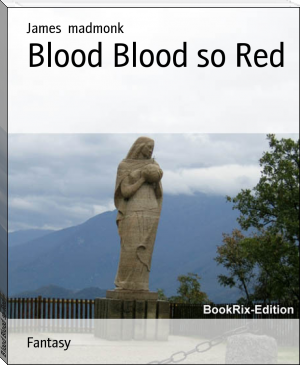Robin Hood, J. Walker McSpadden [book recommendations for teens .TXT] 📗

- Author: J. Walker McSpadden
Book online «Robin Hood, J. Walker McSpadden [book recommendations for teens .TXT] 📗». Author J. Walker McSpadden
Swinging himself up boldly by means of this friendly vine, he crept through the window and in a moment more had sprung upon the warder from behind and gripped him hard about the throat. The warder had no chance to utter the slightest sound, and soon lay bound and gagged upon the floor; while Arthur-a-Bland slipped himself into his uniform and got hold of his keys.
‘Twas the work of but a few moments more to open the gates, let down the bridge, and admit the rest of the band; and they lot inside the town so quietly that none knew of their coming. Fortune also favored them in the fact that just at this moment the prison doors had been opened for the march of the condemned man, and every soldier and idle lout in the market-lace had trooped thither to see him pass along.
Presently out came Will Stutely with firm step but dejected air. He looked eagerly to the right hand and to the left, but saw none of the band. And though more than one curious face betrayed friendship in it, he knew there could be no aid from such source.
Will’s hands were tied behind his back. He marched between rows of soldiery, and the Sheriff and the Bishop brought up the rear on horses, looking mightily puffed up and important over the whole proceeding. He would show these sturdy rebels—would the Sheriff—whose word was law! He knew that the gates were tightly fastened; and further he believed that the outlaws would hardly venture again within the walls, even if the gates were open. And as he looked around at the fivescore archers and pikemen who lined the way to the gallows, he smiled with grim satisfaction.
Seeing that no help was nigh, the prisoner paused at the foot of the scaffold and spoke in a firm tone to the Sheriff.
“My lord Sheriff,” quoth he, “since I must needs die, grant me one boon; for my noble master ne’er yet had a man that was hanged on a tree:
Give me a sword all in my hand, And let me be unbound, And with thee and thy men will I fight Till I lie dead on the ground.”But the Sheriff would by no means listen to his request; but swore that he should be hanged a shameful death, and not die by the sword valiantly.
“O no, no, no,” the Sheriff said, “Thou shalt on the gallows die, Aye, and so shall they master too, If ever it in me lie.” “O dastard coward!” Stutely cried, “Faint-hearted peasant slave! If ever my master do thee meet, Thou shalt thy payment have!” “My noble master thee doth scorn, And all thy cowardly crew, Such silly imps unable are Bold Robin to subdue.”This brave speech was not calculated to soothe the Sheriff. “To the gallows with him!” he roared, giving a sign to the hangman; and Stutely was pushed into the rude cart which was to bear him under the gallows until his neck was leashed. Then the cart would be drawn roughly away and the unhappy man would swing out over the tail of it into another world.
But at this moment came a slight interruption. A boyish-looking palmer stepped forth, and said:
“Your Excellency, let me at least shrive this poor wretch’s soul ere it be hurled into eternity.”
“No!” shouted the Sheriff, “let him die a dog’s death!”
“Then his damnation will rest upon you,” said the monk firmly. “You, my lord Bishop, cannot stand by and see this wrong done.”
The Bishop hesitated. Like the Sheriff, he wanted no delay; but the people were beginning to mutter among themselves and move about uneasily. He said a few words to the Sheriff, and the latter nodded to the monk ungraciously.
“Perform your duty, Sir Priest,” quoth he, “and be quick about it!” Then turning to his soldiers. “Watch this palmer narrowly,” he commanded. “Belike he is in league with those rascally outlaws.”
But the palmer paid no heed to his last words. He began to tell his beads quickly, and to speak in a low voice to the condemned man. But he did not touch his bonds.
Then came another stir in the crowd, and one came pushing through the press of people and soldiery to come near to the scaffold.
“I pray you, Will, before you die, take leave of all your friends!” cried out the well-known voice of Much, the miller’s son.
At the word the palmer stepped back suddenly and looked to one side. The Sheriff also knew the speaker.
“Seize him!” he shouted. “‘Tis another of the crew. He is the villain cook who once did rob me of my silver plate. We’ll make a double hanging of this!”
“Not so fast, good master Sheriff,” retorted Much. “First catch your man and then hang him. But meanwhile I would like to borrow my friend of you awhile.”
And with one stroke of his keen hunting-knife he cut the bonds which fastened the prisoner’s arms, and Stutely leaped lightly from the cart.
“Treason!” screamed the Sheriff, getting black with rage. “Catch the varlets!”
So saying he spurred his horse fiercely forward, and rising in his stirrups brought down his sword with might and main at Much’s head. But his former cook dodged nimbly underneath the horse and came up on the other side, while the weapon whistled harmlessly in the air.
“Nay, Sir Sheriff!” he cried, “I must e’en borrow your sword for the friend I have borrowed.”
Thereupon he snatched the weapon deftly from the Sheriff’s hand.
“Here, Stutely!” said he, “the Sheriff has lent you his own sword. Back to back with me, man, and we’ll teach these knaves a trick or two!”
Meanwhile the soldiers had recovered from their momentary surprise and had flung themselves into the fray. A clear bugle-note had also sounded the same which the soldiers had learned to dread. ‘Twas the rallying note of the green wood men.
Cloth yard shafts began to hurtle through the air, and Robin and his men cast aside their cloaks and sprang forward crying:
“Lockesley! Lockesley! a rescue! a rescue!”
On the instant, a terrible scene of hand to hand fighting followed. The Sheriff’s men, though once more taken by surprise, were determined to sell this rescue dearly. They packed in closely and stubbornly about the condemned man and Much and the palmer, and it was only by desperate rushes that the foresters made an opening in the square. Ugly cuts and bruises were exchanged freely; and lucky was the man who escaped with only these. Many of the onlookers, who had long hated the Sheriff and felt sympathy for Robin’s men, also plunged into the conflict—although they could





Comments (0)